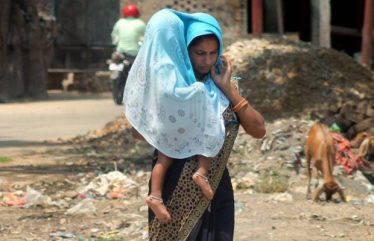By Biswajiban Sharma
Young women and girls spend a disproportionate amount of their time carrying out unpaid household work in India. A survey, conducted by Universities of East Anglia (UEA), Birmingham and Brunel, found that while the unpaid household work burden increased for both genders, young women across India ended up shouldering the lions’ share of various household chores and care duties.
Though indistinct regional variations existed, nearly 80% of women participated in unpaid domestic work across all states, regardless of men’s participation in such work and women’s participation in employment and related activities.
The research team examined data from a longitudinal cohort study of childhood poverty and household chores and care duties of 12,000 children and young women (between 8 to 22 years) from India, Ethiopia, Peru and Vietnam. Following the lives of children, the research team analysed employment participation in any paid work and any sector (including agriculture), type of employment and wages.
The research shows women’s employment participation is affected by taking on the weight of this care burden in childhood, thus adding to existing inequality gaps.
According to a recent UNICEF report , girls spend 40% more time on household chores than boys. Unequal shares of household work are highly consequential for girls and linked to wider inequalities.
Dr Vasilakos, associate professor of Sustainable Business Economics and Public Policy at UEA’s Norwich Business School, said: “Unequal participation in household work starts at a young age, widening differences over time suggest gendered trajectories.
”The amount and nature of household work influences girls’ school participation, reduces their time for study and can thus constrain their future employment opportunities. Professor Fiona Carmichael, Professor of Labour Economics at Birmingham Business School, said: “Longer hours of unpaid household work that reduces girls’ time for study may therefore limit their future lives by constraining employment opportunities. “This confirms that the care burden to women of their greater share of household work starts back in childhood.”
The study further says that the pandemic has aggravated gender inequalities in the labour market like never before. Professor Shireen Kanji, Professor of Human Resource Management at Brunel University London, said: “It seems that in comparison to men, women’s employment is likely to be driven to a greater extent by lack of choice or by need, and is characterised by fewer opportunities for well-paid, higher-quality employment.”
Snidhi Mishra, a Delhi-based sociologist, said: “To meet the needs of the economically weaker women in managing increased unpaid work and childcare load, the government should explore providing childcare support to households in the form of childcare allowances, cash transfers or vouchers.
